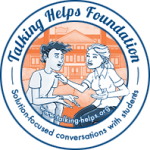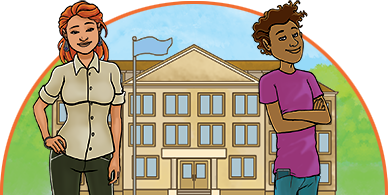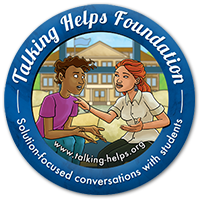Talking-Helps Foundation
Be inspired

What is Talking-Helps Counselling?
Talking-Helps Counselling is a brief, goal-directed school counselling, based on solution-focused psychology. The counsellor specialises in solution-focused conversation skills, acknowledging problems and focusing on the student’s desired changes. Together with the student, the counsellor will make a plan to overcome difficulties, reconnect to resources, set goals for the future and subsequently find significant moves towards these goals.
The student can bring a friend or family member with him to the counselling sessions or can come alone. In the first session, the circle technique plays a central role, visualising the student’s strengths, resources, and goals. At the end of the first session, the student is invited to use a talking-helps form to write down the discussed small, achievable steps towards goals as well as how friends, family, and the school can support him or her. This form the student can take home.
During follow-up sessions, the student and counsellor discuss the achieved progress, who and what has helped to achieve it and identify the next significant moves towards the student’s goals. Usually, the brief counselling is sufficient for the student to get ahead in a good way.
Be part of the Talking Helps Community
Subscribe to our newsletter



